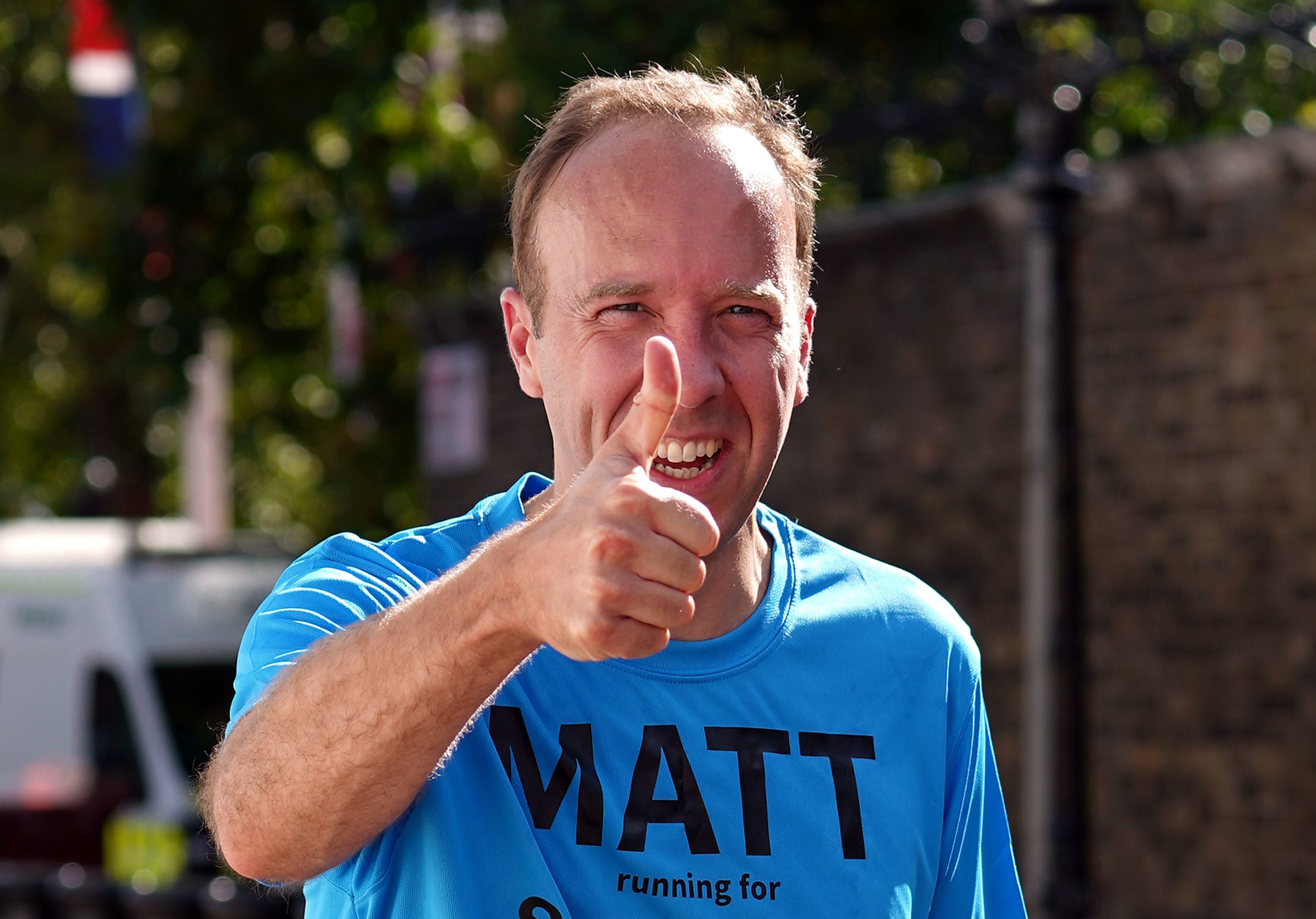Why Matt Hancock is such a willing victim of ‘gotcha!’ TV
He’s a humiliated politician facing 50 and oblivion – of course he’s going risk a media grilling if it keeps his name on screen, writes Salma Shah


Why does Matt Hancock do it? Willinging exposing himself to a pretty brutal grilling from Kate Garraway on Good Morning Britain about his appearance in the jungle and that social distance-busting clinch. There was no public clamour for him to appear, no discernible objective; but once again, he popped up in the TV studios for another hit of that drug: relevance – so beloved by politicians.
Hancock is now a public profile looking for a purpose. Like so many others of his generation, he was swept up in the rising tide of David Cameron’s success. But thanks to his TV appearance on I’m a Celebrity (he was stripped of the Tory whip for flying off to the jungle) and his less than shining behaviour during the pandemic (he broke his party’s own lockdown rules because he “fell in love”); he is now, before the age of 50, facing the fact that his frontbench political career is behind him. Inevitably, he’s left casting around for something to do.
This seems to be a feature of the current generation of MPs. Hancock came in, rose through the ranks at great speed and then – when the political career flatlined – turned to reality TV. So, is a career in media a logical place to go after public service?

The line between politics and media is often interlaced. Boris Johnson famously edited a magazine as a backbencher; Jacob Rees-Mogg is all geared up for a stint on GB news and Nadine Dorries is having a go with her own show on Talk TV. It’s not at all difficult to see how easy it is to make that jump from answering questions to asking them.
It’s not an entirely new phenomenon to see politicians on TV, but it is more prevalent. Ed Balls, who lost his seat in 2015, became a surprising star – who, despite his political reputation as a bruiser, warmed the nation’s heart thrusting his sequinned hips on Strictly. Further back in history, Michael Portillo relaxed his tough Tory exterior and found a new life about railways on the BBC in his brightly-coloured signature jackets. It is clearly possible to transfer one’s Westminster notoriety into a fully blown media persona.
Traditionally, going into politics was people’s second career. It sounds old-fashioned, perhaps we should be encouraging people to come into politics later – seeing public life as less of a job and more of a vocation?
After all, we have a whole crop of young politicians who now have few options left when they become jaded with life in Westminster; most of whom came in with a noble aim to better the lives of their fellow countrymen. They are now trying to work out what their options will be if an election goes awry for them in 2024.
Early retirement only works for those with an income large enough to support it. Most people will have to work out what their price will be and see who is willing to pay. There are probably lots of MPs, who – over the last 10 years – have wondered whether they made the right decision jumping from anonymity into public life, only to face the burn of obscurity afterwards. It is hard to have had the trappings of power and to drift back to normality.
It just goes to show that political careers aren’t great launchpads for the future, they are more likely to just end in failure. Maybe with the prospect of another 20 years of work looming, Hancock’s decision to keep himself in the public eye makes more sense.
Join our commenting forum
Join thought-provoking conversations, follow other Independent readers and see their replies
Comments
Bookmark popover
Removed from bookmarks